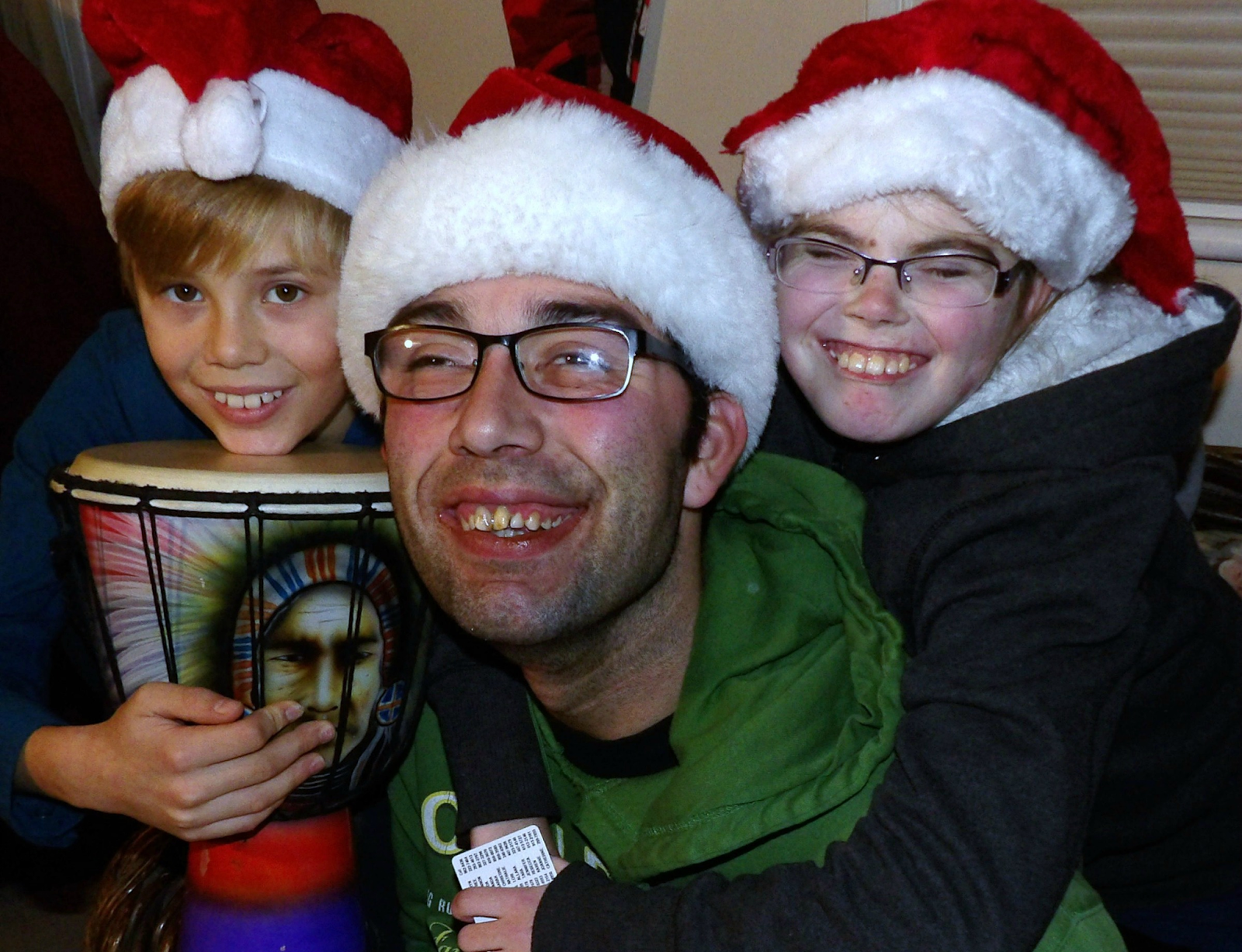I know I can speak for caregivers — the ones who really, truly care for and about their autistic loved ones, not the ones who phone it in or worse — when I say that we deserve a welcome at that table. And I do feel welcomed by the autistic self-advocates, and I think that’s how it should be. I wish their language could be amended to reflect the fact that people who have the challenges Nat faces really depend on others to speak for them. Some things about him have to happen without him. I wish it were not so, because I want him to be the author of his life. But he always has a ghostwriter, mostly me.
I don’t know how Nat feels about this reality. Is he used to not doing a lot of things for himself, by himself? Does this bother him? Or is he accepting of it? Maybe both. I guess everyone’s different in how much they accept of their inabilities. Anyway, I try so hard to talk to him, to include him in our conversations, but he still is talked about, talked over. Others are far worse than me in this regard. I’ve seen so many well-intentioned people ask me what he’d like to drink. To them, I am that intertwined with Nat’s presence. They think I know. This Christmas it was very natural for me to answer, “I don’t know, you’d have to ask him,” completely without anger. It came out naturally; I knew Nat would answer. How does he feel about these kinds of situations? I hope he’s proud that I just steer people to him, more than pissed off that I have to do that.
I notice how the norm for most people in our family is to ignore Nat. His brothers do not even think to include him in the simplest of activities, like looking at stuff on their laptops together. I wish it were different and yet this is how it has to be. Their lives, their decisions have to be their own. I know that if I were to ask them to include Nat they would, but would that be good for them? As it is they have had their lives changed greatly by having Nat with them — in good and bad ways. I cannot decide things for them without them. It feels like it is crossing a line to do that. Don Meyer, director of the Sibling Support Project, told me in an interview that you have to let the siblings have their own existences, let them do what they need, their lives are hard enough. That there are so many questions in their minds, fears for the future both named and unnamed, that they wrestle with in regard to Nat, that for me to then step into their consciousness and give them tasks, basically give them the message that the thing they are doing is not nice — would be an invasion of an important boundary. It’s not that they’re being mean. It’s that they are being themselves. I never let them be mean. But this is a gray area that now that they are 22 and 16 they must navigate themselves. They have to come to it themselves and the more they are allowed to be who they are, the more likely they are to come to Nat in the future and open their arms to him.
I try hard to let the three of them determine for themselves who they are and what they want to do with their lives. But they do need my guidance. They cannot be allowed to be mean. Is not including Nat mean, or is it merely what they do right now?
As for Nat, not being able to speak for himself much is one of Nat’s greatest challenges. He is frequently passive or unable to determine what he wants, and so it is a complete conundrum to help him in this regard. Helping him not be passive — the only way to do that is to sabotage things, make him so frustrated that he has to ask for them. It feels cruel and in the end, it doesn’t really help. It’s an ABA-ish solution, one where you may end up helping but the means of doing so are questionable.
You can’t force someone to move past their disability. You have to accept their limitations as much as they need to. You have to give help, and they have to accept it, but you also have to not help sometimes. Sometimes you also have to step back and let things go on in an unsatisfying, imperfect way. I don’t like that. And so, letting him go home Sunday evenings in this murky set of circumstances feels bad to me, like it does when people basically ignore Nat. In the end I have to hope that what we are doing or not doing for Nat is what he would want. Or at least what is okay with him.
Susan Senator is the mother of three sons, the oldest of whom has autism. She is an author and disability advocate and her published work can be found at http://susansenator.com.































